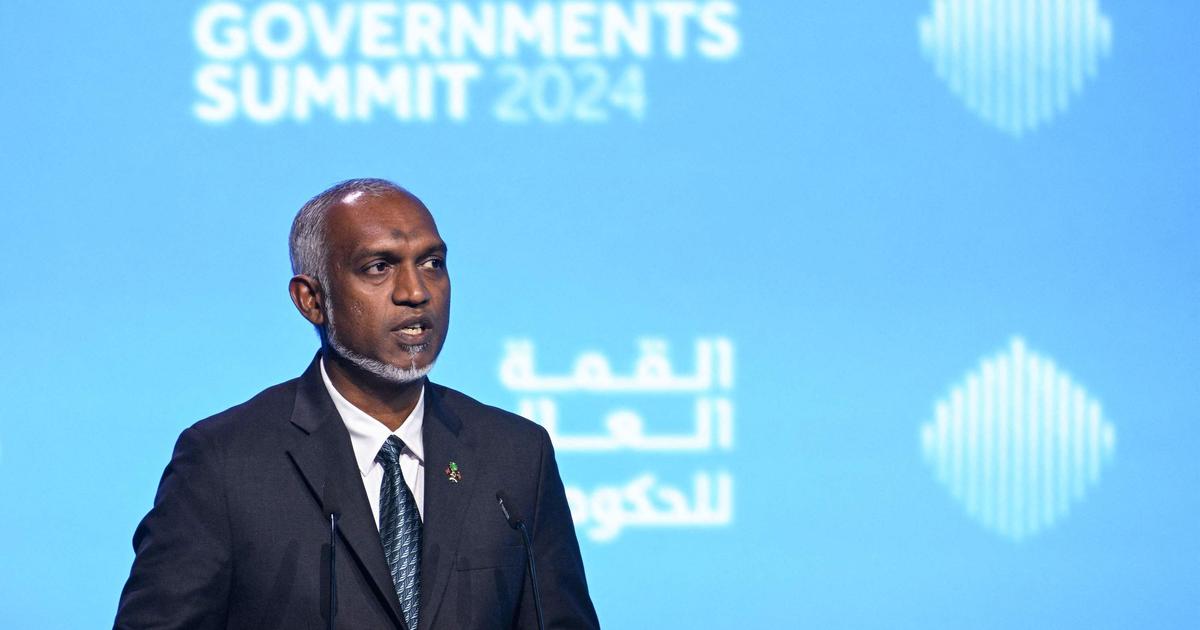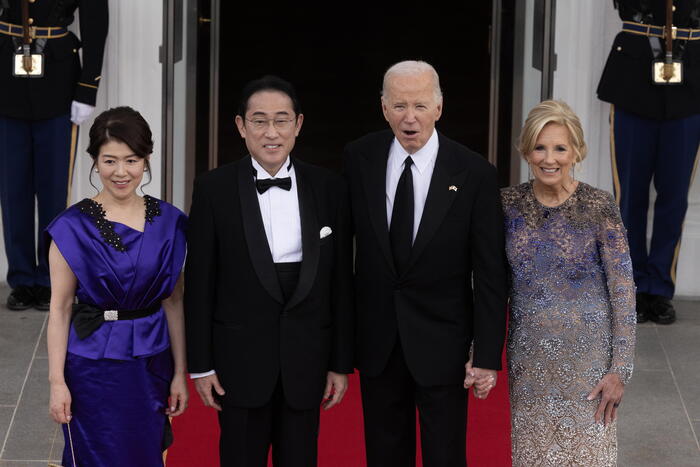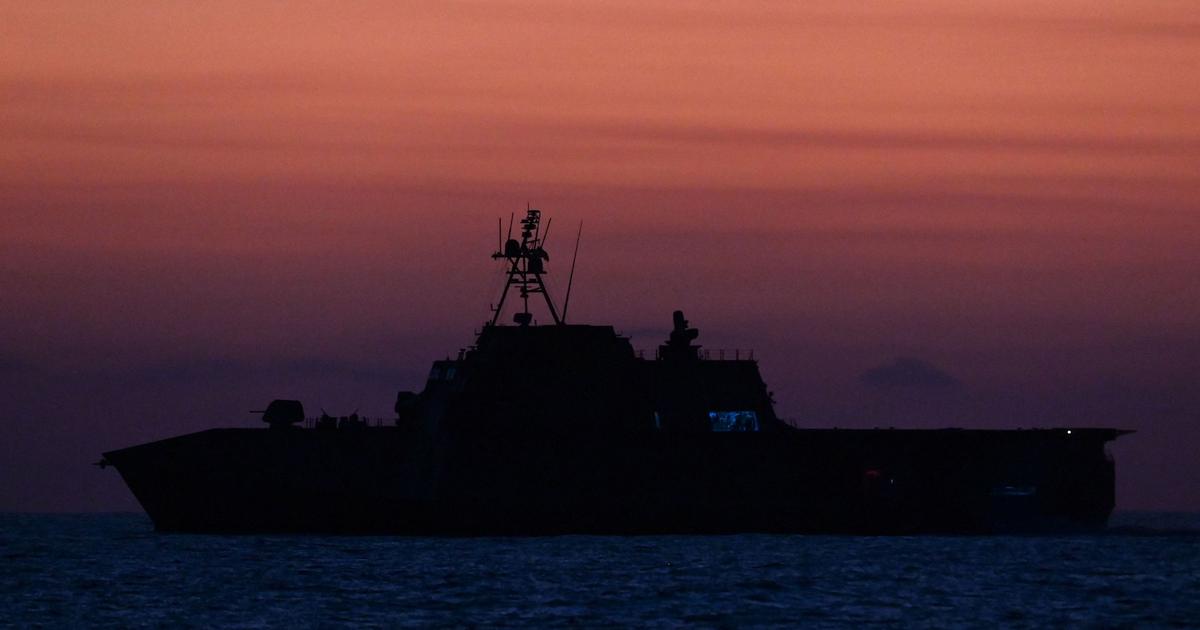Four against China: Quad alliance wants to ensure freedom of the Indo-Pacific - but they disagree on one issue
Created: 05/24/2022, 17:29
By: Christiane Kuehl
The Four from the Quad Summit: New Australian Prime Minister Albanese, US President Biden, Japan's Prime Minister Kishida and India's Prime Minister Modi (left to right).
© POOL/Zuma Wire/Imago
The four quad states agree on almost everything: Under the leadership of the USA, they want to maintain free order in the Indo-Pacific in the face of China's striving for power.
But in the Ukraine war, India breaks out.
Tokyo/Munich – The most obvious thing is what is not being said: it is about China.
A quartet of leading democracies want to work even more closely together in the Indo-Pacific.
At its summit on Tuesday, the so-called quad alliance of the USA, Japan, Australia and India confirmed that a conflict like that in Ukraine in the region should be avoided at all costs.
"We firmly oppose any coercive, provocative or unilateral action aimed at changing the status quo and increasing tensions in the region," the statement said after the Tokyo summit.
The unspoken background is China's growing power struggle in the region.
The summit was hosted by Japan's Prime Minister Fumio Kishida, US President Joe Biden, Indian Prime Minister Narendra Modi and Australia's new Prime Minister, Antony Albanese.
Albanese had been sworn in just the day before.
The four states stand together for a free and open Indo-Pacific.
In Tokyo, the Quad states launched, among other things, a new initiative to improve maritime surveillance, which is also intended to combat illegal fishing in the region.
According to the White House, the project will enable "faster, more extensive and more accurate" ocean surveillance in near real time.
Ships that specifically switch off their position transmission so as not to be caught should also be able to be located better with the system.
China is often accused of tolerating or even encouraging illegal fishing in the territorial waters of other countries in the region.
According to the decision, the data from the system should also be made available to partner countries in Southeast Asia, the Indian Ocean and the Pacific Islands.
Ukraine war: Quad member as well as China officially with neutral stance
On Tuesday, Biden also described the Ukraine war launched by Russia as a global challenge.
"This is more than just a European issue, it's a global issue," Biden said.
"We are moving through a dark hour in our common history." Again, China has come under criticism for its refusal to condemn Russia's attack.
But within the quad group things are quite tricky.
Because India is also emphatically neutral in the conflict.
New Delhi does not support the western sanctions and has even bought up massive amounts of additional Russian oil at low prices.
In April, Russia became India's fourth largest oil supplier, and the trend is still rising.
India traditionally has good relations with Moscow and buys a lot of Russian armaments.
The summit declaration therefore made no mention of Russia's attack.
It was only said that the four had discussed their "respective answers" to the "conflict in Ukraine" and its consequences.
However, Albanese said afterwards that "clear opinions" about Russia were expressed at the meeting.
Since the beginning of the war, the West has tried unsuccessfully to get India on its side.
There is more unity in dealing with China.
All four states have problems with China's quest for power in the region.
Both India and Japan have territorial conflicts with China: India in the Himalayas, Japan in the East China Sea.
Australia, for its part, is concerned about China's growing activities in the Pacific - especially given a security deal Beijing recently struck with the Solomon Islands.
Dealing with China therefore played an unusually large role in Australia's recent election campaign.
USA: Alliances and Economic Partnerships in the Indo-Pacific
The USA is currently weaving a dense network of security policy alliances in the Indo-Pacific.
This includes the Aukus alliance with Australia and Great Britain, which includes a delivery of American nuclear submarines to Canberra.
Beijing has therefore long accused Washington of a containment policy.
The USA, on the other hand, was less active in economic cooperation with Asia for a long time.
But that is now set to change: On Tuesday, Biden launched a new framework agreement for economic cooperation in the Indo-Pacific region called IPEF, which will also include Japan, Australia, India and nine other countries – but not China.
also read
"Increasingly feverish and unstable": Ex-secret service agent reports of "chaos" surrounding Putin
"It really happened": According to the Ukrainian secret service, Putin survived an assassination attempt after the start of the war
So far, however, the IPEF has not been a very far-reaching agreement.
Above all, it is about rallying the states of the region closer to the United States through common rules for technology companies, joint protection of supply chains or the joint fight against climate change.
IPEF is not a trade agreement with tariff reductions.
For such a move, Biden would need approval in the US Congress, and that would be anything but certain.
Many experts therefore criticize IPEF as haphazard.
It is therefore uncertain whether the initiative will generate great euphoria and real cooperation in the region.
Indo-Pacific: Taiwan's security comes into focus
In view of the Ukraine war, Taiwan's security is once again becoming the focus of the USA and its allies.
On the eve of the summit, Biden had warned China of an attack on Taiwan with an unusually clear promise of military assistance.
On Tuesday, however, he rowed back a little.
When asked by a reporter that the policy of "strategic ambiguity" in dealing with China and Taiwan still applies, he reiterated: "No. The policy has not changed at all."
Defense Secretary Lloyd Austin had already emphasized on Monday evening that Biden's statement did not mean a change of course in US politics.
It remained unclear whether the back and forth was a strategic calculation or rather a mistake.
The contradicting statements could be a strategy to send signals to Beijing that Washington would not tolerate an aggressive change in the status quo, Hong Kong
's South China Morning Post
wrote , citing analysts.
Either way, the US is providing more military support to Taiwan today than it did a few years ago: it is supplying more and different weapons and training Taiwanese soldiers.
Because China is putting increasing pressure on Taiwan, there are fears that China might feel emboldened to launch an invasion of the democratically governed island in the shadow of the Ukraine war.
The People's Republic sees Taiwan as a breakaway province and has never ruled out a violent conquest.
(ck)





/cloudfront-eu-central-1.images.arcpublishing.com/prisa/OORXB2YNDLANHK3OYLEUMD7SPM.jpg)



